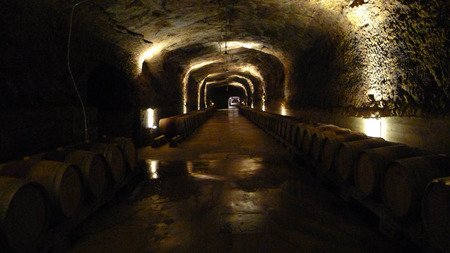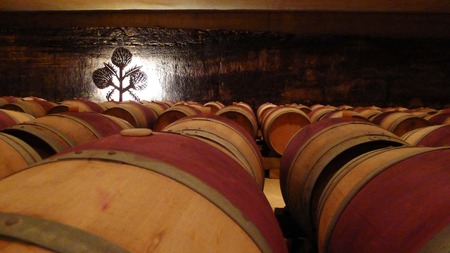La Rioja::Bodegas Roda
The Rioja wine region is one of the most famous in Spain, and perhaps even in the world. It's the region that most people know by name, due to their popularity in the States and reputation as delicious yet affordable. A couple important points for those without much exposure to Riojan wines: as in the rest of Europe, and unlike in the States, the wines are classified by region, and not by grape. So here, you wouldn't order a glass of merlot (or garnacha, or tempranillo, or whatever), you would order a rioja, or an albariño.
In the Rioja, in particular, you have four classifications. Young wines are called 'del año', and they are meant to be drunk straight away and typically not for saving. The next step on the wine classification is 'crianza', which has been aged two years (one in barrel and one in bottle). If you speak passable Spanish to a bartender when ordering a red wine here, they'll ask you 'crianza o del año', a question to which there is no correct answer.
I went to Bodegas Roda, a family-owned winery that produces an interesting line of wines, with an awesome company from here called San Sebastian Food, which organizes gastrotours of the area.
It's a fairly young winery, started in the 80s. They have two signature wines, Roda and Roda I, and the number of bottles produced of each varies because each year the grapes change according to the climate. Our guide told us about the microclimate of the region, and how she always drives the 15 minutes to work in cold, or clouds, or rain, but ends up in a sunny mild valley of Rioja.
They age all their wines in new and semi-new French oak, and clarify them in the traditional manner, with egg whites. They have a very special del año called Cirsion, which was the runaway favorite in the tasting. With deep notes like tabacco, it's full of character although it's only been in oak for 6 to 8 months and in the bottle for another 8. We followed the wine tasting by tasting two olive oils, made by the same family with olives grown on some of their property-and, of course, helping ourselves to another glass or two of the Cirsion.


